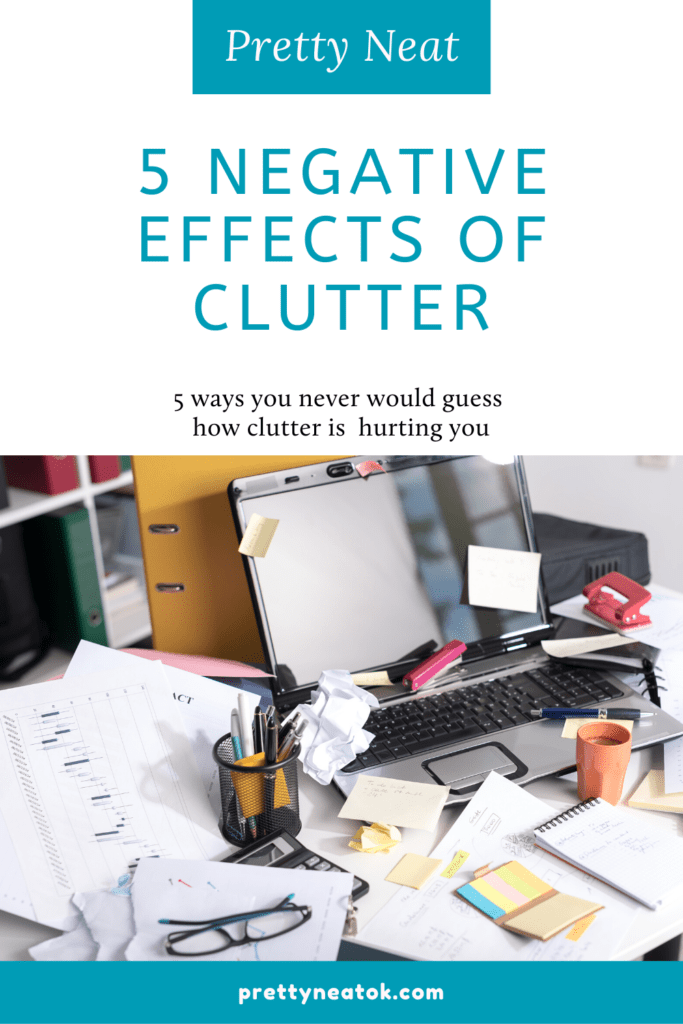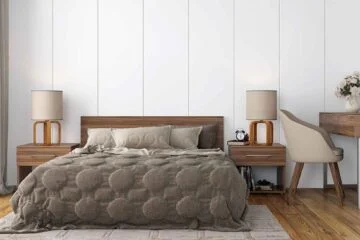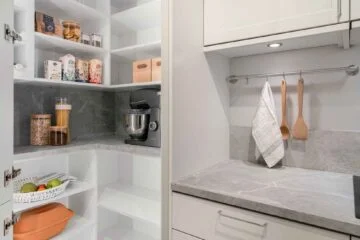Negative Effects of Clutter-5 Ways It Effects US
Do you ever look around your home and wonder how it got so full of stuff? You try to remember a time when you could actually sit at the dining room table for dinner without moving loads of items off first. Maybe it’s not even just physical stuff that is cluttering your life. Virtual clutter, such as an overflowing email inbox, is just as chaotic. Let’s discuss the negative effects of clutter.
The accumulation of both physical and mental clutter can feel exhausting and defeating.
Before organizing, I spent 12 years in the medical field as a physical therapist treating people in their home settings. It was during those years that I witnessed firsthand how a cluttered and unorganized environment affects health.
Often, we get so busy that we don’t really take time to acknowledge or understand how the clutter and disorganization around us causes major harm.
Most of the ways clutter affects us, that I will share below, will be a complete shock since we wouldn’t normally think that simple inanimate objects in our own home could cause such disarray but tha’s not the case.

5 Surprising & Negative Effects of Clutter
- Health
One of the biggest ways that clutter negatively affects us is our health. Clutter overwhelms the brain which raises the stress hormone cortisol. More mess = more stress. When we get stressed, we tend to make poor decisions about the foods we eat and often resort to consuming comfort foods to cope. This can lead to overeating and weight gain.
Not only does stress cause us to develop poor eating habits, but research shows that stress increases our blood pressure, slows digestion, and even interferes with our sleep.
Have allergies? Well, the clutter in your home is a contributing factor because more things mean more dust. Increased dust levels can pollute the air and cause irritating respiratory problems.
Living with lots of clutter also puts you at risk and is dangerous. When your floor is covered with boxes, heaps of clothing, or even too much furniture, it’s that much easier to trip and fall. Shelves crammed to the brim can also be a threat if something falls off or a piece of overloaded furniture tumbles over.
Your working memory is another health risk if you live in a cluttered home. Your brain is wired to be able to keep track of only a few things at once over a short period of time. It gets overloaded when there is too much going on and therefore can contribute to forgetfulness, overwhelm, and decreased overall mental processing.
Clutter can be a major fire hazard as well. If there are loads of papers and other clutter not only can make the fire spread faster but also cause you more trouble getting out in time if the pathways and exits are blocked.
- Relationships
A cluttered home can often lead you to feel embarrassed about your surroundings and make you not want to invite company over. Therefore, your relationships suffer, and you can often find yourself feeling isolated.
Have you ever had a fight with your kids or spouse over stuff? If you have, you are not alone. Managing a home full of stuff can be overwhelming and exhausting. It takes a lot of time and energy to spend picking up and sorting through your items to get what you need. This is time that you could be spending with those you love instead.
- Productivity
Messy surroundings compete for your attention and distract you from your to-do list. The visual clutter around you overstimulates your brain and makes it nearly impossible to focus.
Especially in a work environment, a messy desk can mean missed deadlines and making crucial errors on projects and reports. If frequent enough, these errors could jeopardize the possibility of a salary increase or even your job.
- Money
You can’t pay your bills if you can’t find them. When your finances are not in order, it could mean a loss to your bank account.
When there is much clutter, it’s easy to misplace things. If you can’t find an item, like your dog’s favorite toy for example, you might buy a duplicate. This habit, combined with unplanned purchases, can get you into debt.
- Energy
Stuff takes your energy. You work to earn the money to buy things you want and need. Then use energy to manage all the items you own. From shopping for it, picking it up, organizing it, looking for it, reorganizing it, keeping track of it, storing it… Well, you get the idea. It all adds up fast!
Those items will stay in your home and your life until you decide to purge, and the decluttering process takes even more time and energy from you.
Imagine what you could do with all the extra time and energy you’d have if you didn’t have to spend so much of it taking care of your stuff!
Simplify to Avoid the Negative Effects of Clutter
Knowing more about the negative effects of clutter and how clutter is harming you can help you towards the path of simplifying and decluttering your home.
These alarming facts can be your fuel and motivation to clear the clutter and create a space that brings you peace. If decluttering and organizing seems impossible and overwhelming than we want to help! No amount of stuff overwhelms us or could scare us away. We see the potential of a space and would be so excited to help you reclaim your health, time, and life back through our organizing services.
Wandering if you need professional organizer? Get our guide here.
See you soon,
Audra


